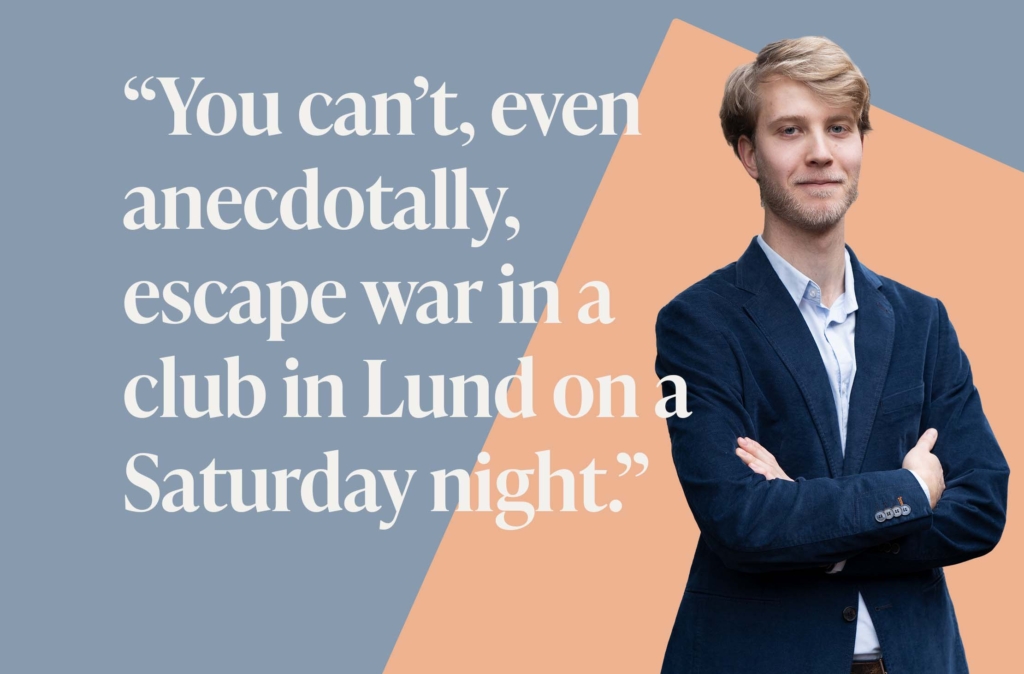Even minor things such as which songs are played at night clubs have been affected by the war in Ukraine. Lundagård's culture columnist Ondrej Gomola reflects on how close to home the conflict hits, even here in Lund.
When I was at a club last weekend, I was bopping to great ‘bangers’ (as the youths would term them to be) such as Queen’s Radio Ga Ga, Journey’s Don’t Stop Believin’ and of course innumerable ABBA songs. In my state of intoxication (I strictly would not, of course, suggest that you do the same), Boney M’s Rasputin came to mind. Another ‘banger’. So I proceeded to go and ask the DJ—who was bopping to the music just as much as we were—if he could play the song. His reply was a respectful rebuttal, citing Russia’s invasion of Ukraine. I understood, of course, and went back to join my friends and Dancing Queen.
It seems bizarre, perhaps, to start a column about a war on Europe’s doorstep with a silly anecdote about Lund’s dance scene. It’s not silly, though, nor bizarre. In fact, it illustrates just how profoundly the war in Ukraine has impacted all of us, however far away we may be. Some say that clubs and discos are the place people go to ‘dance the night away’ and forget life’s trials and tribulations—but you can’t, even anecdotally, escape war in a club in Lund on a Saturday night.
Having been born in Slovakia, the striking likeness of (now obliterated) towns like Mariupol and Kyiv with the ones at home is just painful. But their architecture resembles what we have here in Sweden, too: functionalism and brutalism was popular across Europe. Disagree? I encourage you to visit Sparta, a particularly striking student residence here in Lund, which could’ve been taken straight from the banks of the Dnipro.
My point is that the war in Ukraine, however far away it may seem, is not that far away at all. After weeks of dawdling, Lund University has understood this, too. LU has organised seminars in support of Ukraine’s plight, showcasing Ukrainian culture and history. The performance of a piece by Vasyl Barvinsky, a Ukrainian composer, along with lectures delving into the region’s rich history help paint a clearer and deeper picture of this country and people whose very existence is under threat.
It is easy to dismiss conflicts in faraway places as terrible suffering that, in the end, you cannot relate to. We should think ourselves fortunate for being able to entertain such thoughts. While I sit here stewing over my exams with refreshments and distractions aplenty, there are others—less than 1000 km from Lund as the bird flies—who have had that opportunity taken away from them forever. These are families, these are students who instead of being rudimentarily distracted by social media are distracted by the sound of air-raid sirens and shells exploding outside their front doors.









